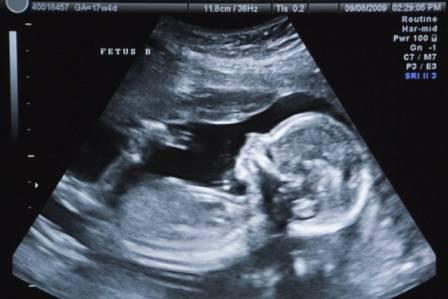
Table of Contents
Down syndrome pregnancy test: it is a condition where a person happens to have an extra chromosome, small “packages” of genes, in their body. Hence, it is very important to get a down syndrome pregnancy test done. These chromosomes help determine the formation of the baby’s body and the functions, as and when they grow during pregnancy and also post-birth. In general, an infant is born using only 46 chromosomes.
To know more about the signs of down syndrome during pregnancy, prenatal screening of Down syndrome, and its treatment, read on!
Importance Of Down Syndrome Pregnancy Tests
As per reports, it is observed that 1 in 1,100 babies in Australia is born with Down syndrome. This is a genetic condition that affects the baby with an intellectual disability, a distinct appearance, and some health and developmental challenges as compared to the other normal pregnancies.
In general, every cell of the human body has 23 pairs of chromosomes. However, Down Syndrome happens to occur when a baby is born with an extra chromosome in their cells, also known as the ‘trisomy 21,’ and can occur at any time of conception. Therefore, it is important to do a down syndrome pregnancy test.
What Are The Symptoms And Causes Of Down Syndrome?
Signs of down syndrome during pregnancy-
A person with Down syndrome could be affected differently, with the intellectual and developmental problems occurring mildly, moderately, or severe, based on the individual. This is because every individual is different, where some are healthy with others having significant health problems.
However, children and adults affected with Down syndrome appear differently due to their distinct facial features. Listed below are some of the more common features:
- Flattened face
- Small head
- Short neck
- Protruding tongue
- Upward slanting eye-lids or palpebral fissures
- Unusually shaped ears
- Poor muscle tone
- Broad, short hands with a single crease in the palm
- Short fingers
- Small hands and feet
- Excessive flexibility
- Tiny white spots in the eye or Brushfield’s spots
- Short height
Note -Infants with Down syndrome could be of average size but tend to grow slower and remain short as compared to children the same age.
Causes Of Down Syndrome During Pregnancy
Down syndrome when an abnormal cell division involving chromosome 21 occurs resulting in an extra partial or full chromosome 21. This extra genetic trait is responsible for the characteristic features and the developmental problems of children and adults with Down syndrome.
Either of the below mentioned genetic variations could cause Down syndrome:
- Trisomy 21 – As per the stats, about 95 percent of the time the Down syndrome is caused by trisomy 21, where a human has three copies of chromosome 21, instead of two in all cells. It is caused by abnormal cell division during the development of the sperm or egg cell.
- Mosaic Down syndrome – It is a rare form where a human has only a few cells with an extra copy of chromosome 21 and is caused by abnormal cell division after fertilization.
- Translocation Down syndrome – This occurs when a portion of chromosome 21 attaches onto another chromosome, either before or at conception. Here, there are two copies of chromosome 21, but with an additional genetic material from chromosome 21 attached to another chromosome.
What Are The Different Types Of Down Syndrome Pregnancy Tests?
There are two types of prenatal tests for Down syndrome:
1) Prenatal screening for down syndrome -
A screening test doesn’t provide you with a definitive answer, but it definitely shows if your baby has a chance to have Down syndrome. Also, screening doesn’t harm the mother or baby.
2) Diagnostics test -
As compared to the screening for Down Syndrome, a diagnostic is rather accurate and lets you know if your baby is diagnosed with Down Syndrome. This prenatal testing is offered to pregnant women with babies who have an increased chance, based on the positive result of the screening test.
Also, unfortunately, a diagnostic test could increase the risk of your risk of having a miscarriage.
Note – Considering the risks in a diagnostic test, it isn’t necessary or rather compulsory to undergo the test if you don’t want to. If the syndrome screening test shows signs of Down Syndrome, you and your family need to decide on what’s best for you, and/or discuss it with your doctor, a midwife, or a genetic counselor.
Diagnosis Of Down Syndrome
The American College of Obstetricians and Gynecologists recommends offering the two tests; screening, and diagnostic for Down syndrome to all pregnant women, irrespective of their age. This is because:
- The Screening test helps indicate the chances of a mother carrying a baby with Down syndrome. However, unfortunately, it wouldn’t be able to assure or diagnose if the baby has Down syndrome
- On the other hand, Diagnostic tests do identify or diagnose if the baby has Down syndrome
1) Prenatal screening for down syndrome
Prenatal Screening for Down syndrome is offered as a routine part of prenatal care. Irrespective of it only identifying the risk of carrying a baby with Down syndrome, a parent with the doctor could make decisions about the more specific diagnostic tests.
The screening Down Syndrome test during pregnancy includes:
a) The First Trimester Combined Test
This is done in two steps:
- Blood test – The blood sample measures the levels of pregnancy-associated plasma protein-A or PAPP-A and the pregnancy HCG hormone (Human Chorionic Gonadotropin). If there are any abnormal levels of PAPP-A and HCG, it may indicate an issue.
- Nuchal translucency test – In this test, the ultrasound measures a specific area on the back of your baby’s neck, known as the nuchal translucency screening test. This is because, in case of an abnormality, most fluid tends to collect in this neck tissue.
With the help of the results of the blood test and the ultrasound, the health care provider can estimate if you’re at risk of having a baby diagnosed with Down syndrome.
b) Integrated Screening Test
This test is done in two parts, in the first and second trimesters of pregnancy with the results combined to estimate the risk that your baby has Down syndrome.
In the First trimester, blood sampling is used to measure PAPP-A and the ultrasound for nuchal translucency. Whereas, in the Second trimester, the quad screen is used to measure the blood level of four pregnancy-associated substances: alpha-fetoprotein, estriol, HCG, and inhibin A.
2) Diagnostic Tests During Pregnancy
In case your diagnostic test is positive, you could consider more testing to confirm the diagnosis or in case not, choose to make a decision. In either of the cases, talk to a doctor to weigh the pros and cons of these tests.
Here is a list of the Diagnostic tests that can identify Down syndrom
a) Chorionic villus sampling (CVS)
In chorionic villus sampling (CVS) the cells are taken from the placenta to analyze the fetal chromosomes and are performed in the first trimester. This diagnostic testing has a low risk of pregnancy loss or miscarriage.
b) Amniocentesis
Here, a sample from the amniotic fluid that surrounds the fetus is taken via a needle to analyze the chromosomes of the fetus and is typically performed in the second trimester. Like the CVS, this test also carries a very low risk of miscarriage.
Treatment Of The Down Syndrome
If Down Syndrome is caught in the early stage for infants and children, it can make a major difference to improve the quality of life. As each child with Down syndrome is unique, the treatment depends on their individual needs and requires different services.
If a child has Down syndrome, one must rely on a team of specialists to provide medical care and develop skills. As per the child’s particular needs, the team of experts includes:
- Primary care pediatrician for routine childhood care
- Pediatric cardiologist
- Pediatric gastroenterologist
- Pediatric endocrinologist
- Developmental pediatrician
- Pediatric neurologist
- Pediatric ear, nose, and throat (ENT) specialist
- A pediatric eye doctor or ophthalmologist
- Audiologist
- Speech pathologist
- Physical therapist
- Occupational therapist
Note – As a parent, you’ll need to make important decisions regarding the child’s treatment and education. To make the process easier, try and build a team of health care providers, teachers, and therapists to help evaluate the resources in the area, explain the state and federal programs for children and adults with disabilities.
To Conclude: Coping And Supporting When Down Syndrome Pregnancy Test is Positive
When a parent learns about their child having Down syndrome, it is natural for a parent to experience a range of emotions, anger, fear, worry, and sorrow. Understandably, one might not know how to react, what to expect and be worried about the ability to care for a child with a disability.
In these situations, it is always recommended to look and enroll yourself for support. Listed below are the steps to prepare yourself and to care for your child:
- Consult your doctor about early intervention programs in the nearby area – These intervention programs are available in most states that offer infants and young children with Down syndrome with stimulation at an early age. These programs help develop motor, language, social, and self-help skills.
- Know of the various school options – As per the need of the child, be it attending regular classes, special education classes, or both. As per the health care team’s recommendations, try and work with the school to choose appropriate options.
- Seek families dealing with similar issues – Try and find communities that have support groups for parents of children with Down syndrome for a better understanding and support.
- Participate in social activities – Look for social activities in your community, such as park district programs, sports teams, or ballet classes.
- Encourage independence – It is possible that your child’s abilities could differ from other children and with support and practice a child will be able to perform better, such as packing lunch, managing hygiene, dressing, light cooking, and laundry.
- Prepare for the transition to adulthood -It is best to prepare and explore opportunities for living, working, and social activities before the child leaves school. However, community living or group homes, and community employment, day programs, or workshops after high school would require planning. You could ask about opportunities and support in your area.
A parent can expect a bright future for a child who has Down syndrome. As per observations, it is expected for children affected by Down Syndrome to live with their families or independently, be able to go to mainstream schools, read and write, participate in the community, and have normal jobs.
Down Syndrome Pregnancy Test FAQ
1. How accurate is the Down syndrome test during pregnancy?
2. How do I check for Down syndrome tests during pregnancy?
3. Can you tell if a baby has Down syndrome in an ultrasound?
4. Does folic acid prevent Down syndrome?
5. Can you prevent Down syndrome during pregnancy?
Reviewed By:

Esha Chainani - Obstetrician and Gynaecologist
Dr. Esha Chainani is an Obstetrician, Gynaecologist, and laparoscopic surgeon who aims to break the stigma around women’s health by advocating an inclusive and open practice of obstetrics and gynecology and an author of several internationally published research papers and health articles in the media like the Swaddle.
She also founded Premaa, a non-profit to reduce maternal morbidity and eventual maternal mortality by providing lower-income pregnant women living in urban areas with cell phone access through an app that can feature an entire section about contraception as well for a whole gamut of reproductive health.
A panel for multiple health sessions including with the UN, USAID, BMC, gender at work, and multiple non-profit organisations, and is on the advisory panel of the South Indian medical students association.










